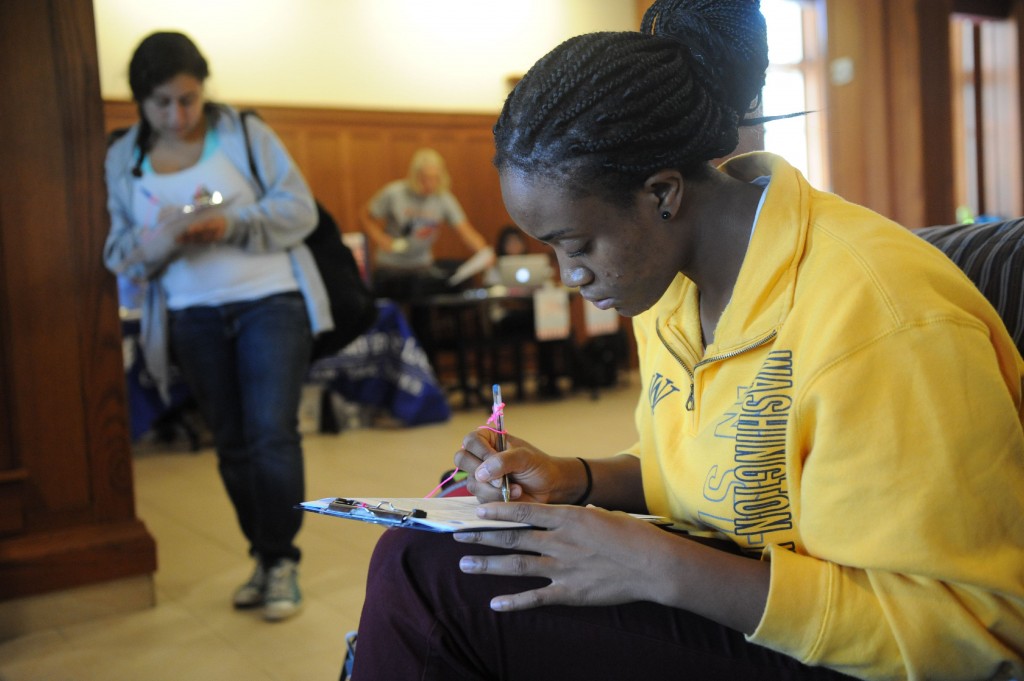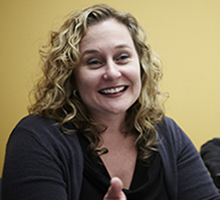
Amanda Moore McBride, executive director of the Gephardt Institute for Civic and Community Engagement and the Bettie Bofinger Brown Associate Professor at the Brown School at Washington University in St. Louis, says United States colleges and universities must do more to encourage students to vote. Yes, voter registration drives and accessible polling places matter. But what happens in the classroom may play an even bigger role.
“Our research shows that students are more likely to vote if their professors connect the content of their classes to the content of the election,” said McBride, citing research she helped conduct during the 2008 election. “A faculty member making those real-life connections mattered more than if the students volunteered, their friends talked about the election in the dorms, or their parents vote.”

McBride will discuss student political advocacy and other challenges facing today’s universities at the annual Campus Compact’s Research University Civic Engagement Network (TRUCEN) conference Feb. 26-27 at Washington University. Experts from 40 of the nation’s top research institutions will gather to explore ways universities can foster social justice on campus, promote responsible social innovation and support faculty research that serves the public good.
In this Q&A, she talks about about some of these issues:
Will the political activism we are witnessing on college campuses translate into increased voter turnout?
Young people are re-engaging in politics and recognizing the role of politics in impacting social change. There was a period where college students saw volunteerism as a substitute for politics. They saw the failure of politics in 9/11 and Hurricane Katrina and said, “Private citizen action is the only way to make change happen.” But now many students are confronting what they see as systemic racism and bias, and they realize there are political systems and tools in place that can make change happen. We’ll see if this civic awakening will translate into voting at the polls.
What can a university do to develop engaged citizens?
Universities can and must do better. Many colleges and universities encourage their students to volunteer in communities, but do these volunteers really understand the issues underlying the conditions they are volunteering to address? In many cases, no, and this is a lost learning opportunity.
At Washington University, we are making that shift from charity to change. This election, the Gephardt Institute is launching a speakers bureau of experts that faculty members can access. The bureau will be able to address voting rights, civic responsibilities as well as relevant topics. We will also offer grants through our Civic Engagement Fund for faculty to host panels and other educationally-oriented sessions that connect the issues to the process of voting. Not every faculty member will want to connect their scholarship and teaching with the election, but we want to eliminate the obstacles for those who do.
Are you worried that these efforts will be misinterpreted as support for specific views or candidates?
What we are talking about is civic education and action, not positions. The how, not the what. Civics education — if you even had one — should not stop with your tenth grade class. It’s our responsibility to ensure our students know the civic tools available for social change and that they have the chance to exercise them. We should be educating our students to be leaders, not just in their respective fields but in public life as well. This is an important part of the civic mission of higher education.
More about Amanda Moore McBride
McBride also holds faculty affiliations with Washington University’s Center for Social Development and the Institute for School Partnership. She is the author of the forthcoming book “From Charity to Change: The Civic Mission of Higher Education” and is a recognized expert in civic and community engagement.
Comments and respectful dialogue are encouraged, but content will be moderated. Please, no personal attacks, obscenity or profanity, selling of commercial products, or endorsements of political candidates or positions. We reserve the right to remove any inappropriate comments. We also cannot address individual medical concerns or provide medical advice in this forum.